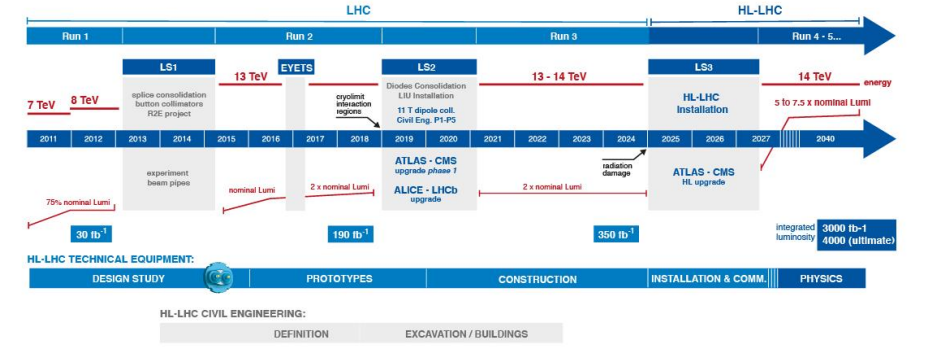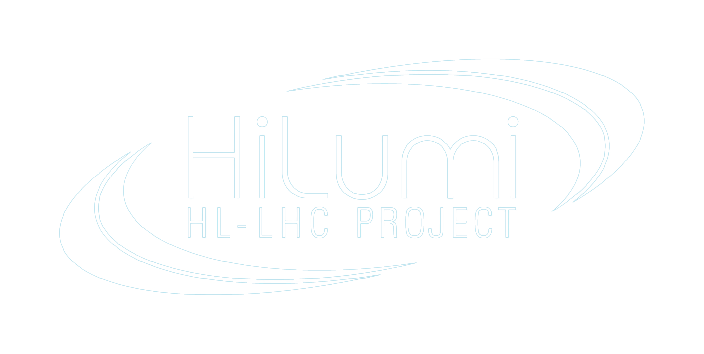In an effort to further enhance the communication and transparency of activities having potential dependencies in terms of schedule or resources on other HL-LHC WPs, a first TCC day was organised on 12th March 2020. The meeting was also the occasion to commonly discuss all further opportunities of descoping and to assess the consequences of the new HL-LHC schedule, which was approved as depicted below in November 2019, on the different HL-LHC WPs.

The meeting started with an update of the HL-LHC project risk assessment, considering the comments and recommendations received during the latest CSR2019, as well as updated input from all WPs. As a general observation, the new schedule results in a reduced risk for most WPs and activities that were on the critical path, at the same time the introduction of new external collaborations also led to a slight increase of the estimated risk for some of the deliverables. In the coming months, the team will trigger another iteration of the risk analysis, aiming at improving the granularity by detailing risk by deliverables rather than globally for the entire WP.
Similar conclusions have been presented for the follow-up of HL-LHC contracts, where delays are observed in more than 50% of contracts that have been fully delivered, whereas 30% imply delays of more than three months with respect to the initial dates agreed in the technical specifications. However, no impact is expected on the global schedule so far due to sufficient planning contingencies. WPs are however encouraged to launch procurement as early as possible as this has been shown to mitigate possible delays during the process.
The impact of the revised schedule on the HL-LHC project schedule was presented based on prior discussions with all WPs. Despite the displacement of LS3 by one year, the baseline planning remains the same for all HL-LHC WPs and only three exceptions are considered. These concern possible savings on additional temporary resources, a smoothening of the overall resource profile due to the start date of LS3, and the reduction of the performance risk, for example through the introduction of additional intermediate tests to quickly identify eventual non-conformities of equipment.
Some more time is required still to finalise the updated planning of the individual WPs, considering the impact as well on the various collaborators and in-kind contributions.
The LS3 schedule has been equally updated, the main activities that remain on the critical path in the new baseline are the de-installation and installation of the HL-LHC magnets as well as the de-cabling and cabling activities, and to a smaller extent the completion of civil engineering, the QXL/QRL installation and the final commissioning activities.
Another important impact of the displaced schedule is the increased need of storage space and duration, which is estimated to around 10,000 m2 only considering the new HL-LHC equipment to be installed during LS3 in the tunnel, underground caverns and surface buildings.
A first estimation of differences in terms of overall project cost between the prior baseline 3.0 (already including the increase of scope approved during the CSR2019 for the hollow e-lens, the new beam dump core and additional dilution kicker magnets), and the updated baseline 4.0 (considering the revised operational schedule with an LS3 start in 2025) was presented, indicating that the delayed schedule will imply a small over-cost for the project. The delay is also expected to increase the overall manpower needs for the period of 2020-27. The data needs to be further consolidated for some WPs and groups, however, as the bottom-up MTP data for the baseline 4.0 is not yet consistently integrated in the presented estimation.
A lively discussion session complemented the already very active exchange and discussions throughout all presentations of the day, concluding this first TCC day. Following the overall very positive feedback received on the added value of such common exchanges, the TCC team is planning to organise similar events once or twice per year as a complement to the CSRs and annual meetings.
